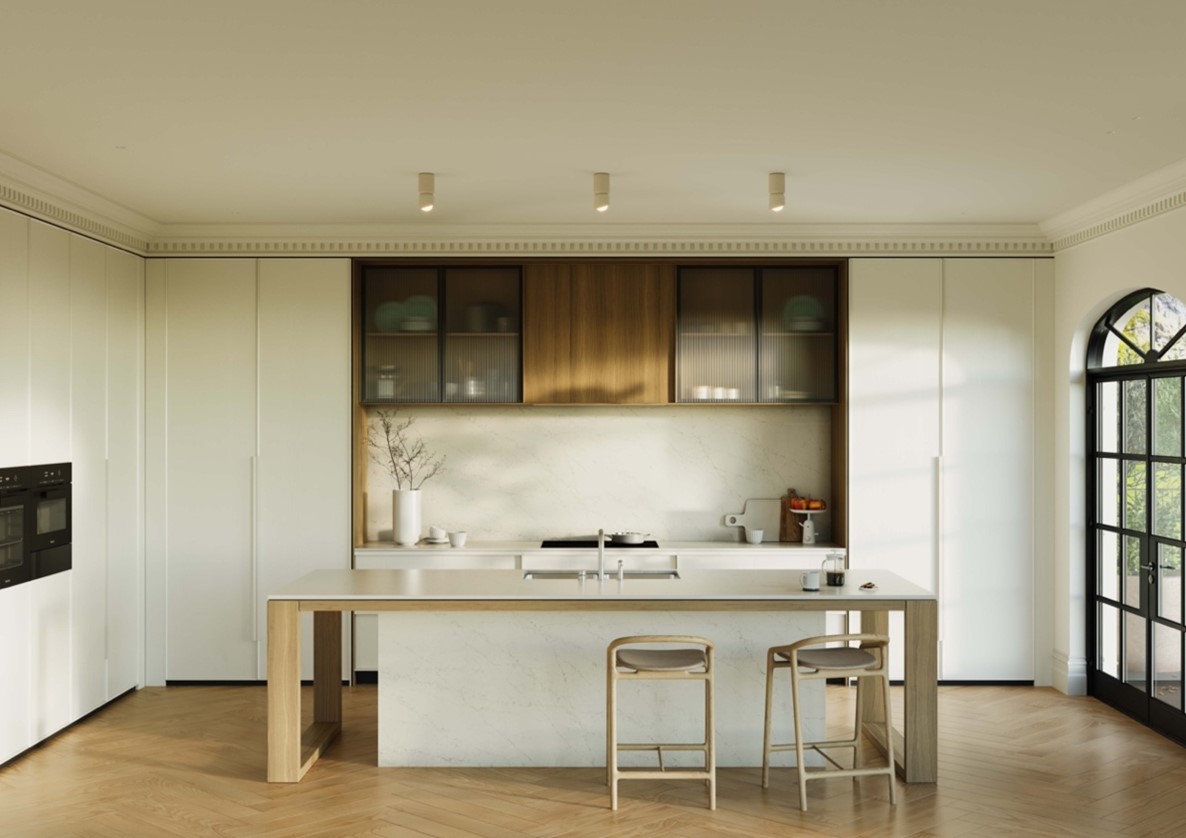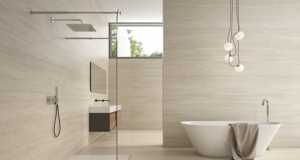
The dream has moved on for design-forward kitchens, with environmentally conscious consumers now placing sustainability ahead of, or equal to, beauty. Caesarstone has risen to the challenge with the addition of three new Mineral Surfaces to its multi-surface collection.
Inspired by nature, each design is a product of Caesarstone’s technological advances in terms of its use of natural raw materials that are both ethically sourced and available in abundant quantities as well as its longevity (each surface carries a lifetime warranty).

Caesarstone Mineral Surfaces – Dreamy Carrara
Solenna reflects the move away from colder greys and stark whites in interiors to warmer hues with earthy undertones. Featuring a rich, milky-white base, Solenna is overlayed with prominent veining in a mix of pale umber and putty, and the occasional amber to give further depth.
Its polished finish ensures maximum light reflection, while its patina complements materials such as matte black or bronze hardware along with cabinetry in warm whites.
Caesarstone Mineral Surfaces – Solenna
Dreamy Carrara, emulates the time-worn patina of Carrara marble, with its elegant, silky white base and scattering of fine sedimentary veins varying in intensity and colour, from warm, earthy greys to deeper, bolder taupes.
This multi-layered patina, along with its honed finish, creates movement and character within the surface and partners well with natural timbers, plaster walls and ceramic decorative elements.
Caesarstone Mineral Surfaces – Brillianza
Lastly, Brillianza provides a complex, captivating surface that takes its cue from the luminous patina of quartzite. Layer upon layer of frosty whites and cool greys are interspersed with crackled and crystalline imperfections, together with powdered-peach mineral accents.
The lustrous, crystalline appearance of Brillianza forges an instant attraction with matte metals such as copper, aged leathers and gloss flooring treatments.
The three new Mineral Surfaces from Caesarstone are all low silica with the bulk of their mineral content being Feldspar. This new generation of sustainable surfaces is notable for its extreme resistance to stains, heat and impact as well as its lifetime warranty. Maintenance requirements are minimal, just a regular wipe with a damp cloth and a light detergent for more stubborn stains (sealing is not required).


